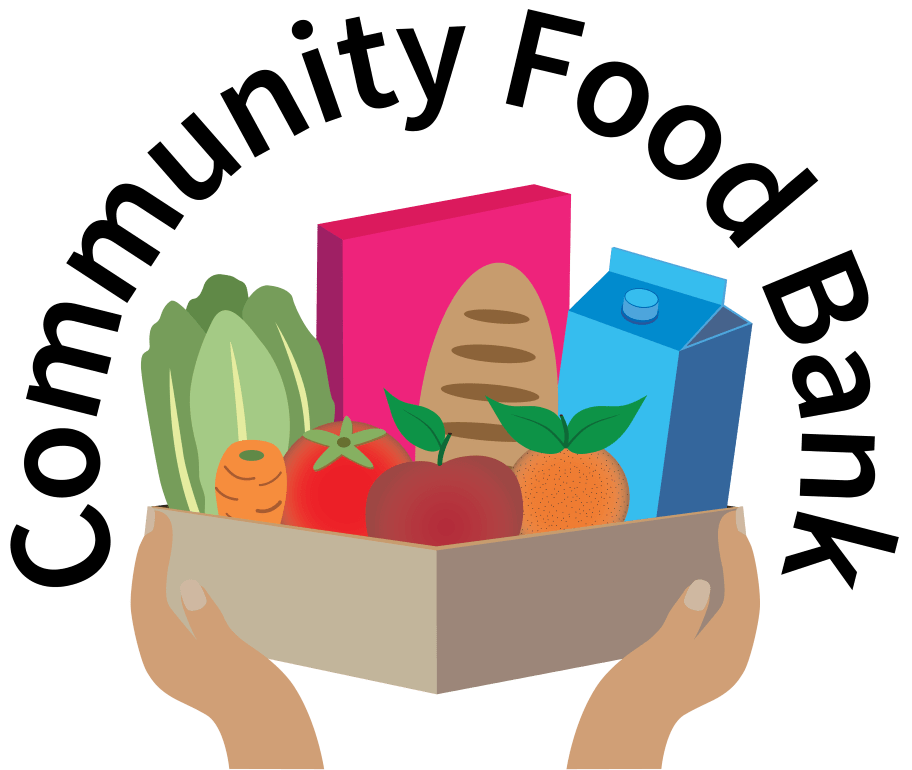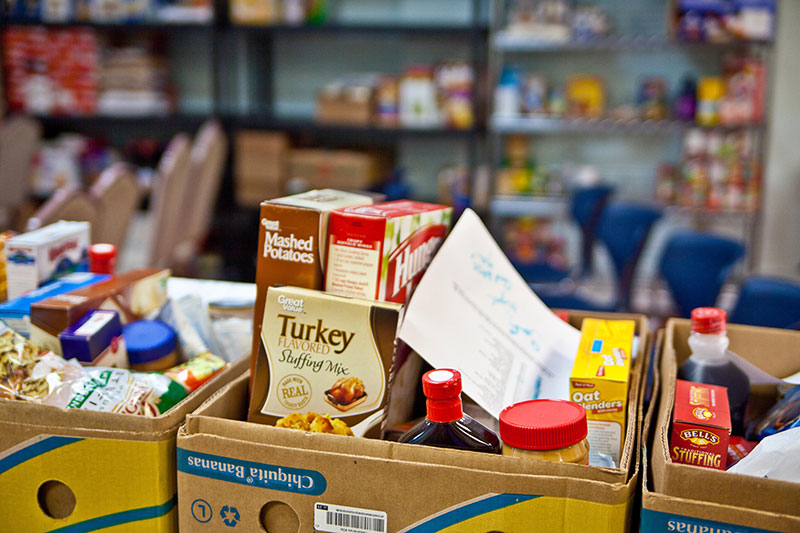Why Supporting Your Neighborhood Food Pantry Is Crucial for Aiding Those in Requirement
The significance of supporting local food kitchens can not be overemphasized, especially in the context of food instability, which affects a disconcerting number of individuals and families within our communities. These vital sources not only offer immediate relief from appetite but additionally add to broader social advantages, including enhanced wellness and academic outcomes. As we explore the multifaceted function of food pantries, it comes to be apparent that their influence extends much past just distributing food (Food Pantry Lockhart). Understanding this deeper link may trigger a reconsideration of exactly how we engage with and sustain these crucial establishments.
Understanding Food Insecurity
Food insecurity influences roughly 10.5% of houses in the United States, illustrating a significant public wellness issue that transcends simple appetite. It refers to the lack of constant accessibility to adequate food for an active, healthy and balanced life. This condition can cause a series of adverse outcomes, consisting of inadequate wellness, enhanced medical care costs, and lessened scholastic efficiency among kids.
The root causes of food instability are diverse, usually coming from financial elements such as poverty, underemployment, and joblessness. Geographic place can also play an essential duty, with food deserts-- locations with limited accessibility to nutritious and affordable food-- exacerbating the issue - Food Pantry Lockhart. In addition, systemic factors, including racial and social injustices, add to the out of proportion effect of food insecurity on marginalized neighborhoods
Resolving food insecurity is not merely about raising food supply; it needs a thorough strategy that includes economic security, education and learning, and community support. Food instability not only influences private wellness but likewise has broader ramifications for social health and efficiency. Recognizing its complexity is necessary for developing effective treatments and fostering long-term remedies that guarantee all individuals have reputable access to healthy food.
The Function of Food Pantries
Local food cupboards work as crucial lifelines for families and people dealing with food insecurity. They supply essential food products to those that may battle to pay for ample nutrition as a result of financial difficulty, unemployment, or unanticipated circumstances. By distributing food at no price, these organizations assist alleviate hunger and avoid the unfavorable health impacts related to insufficient diet regimens.
Food cupboards frequently partner with neighborhood ranches, grocery store stores, and neighborhood organizations to source a variety of nourishing food products, including fresh produce, dairy, and healthy proteins. This partnership makes certain that kitchen customers receive not only sustenance but likewise healthier choices that add to general wellness.
Furthermore, food cupboards work as area centers, cultivating connections among residents and offering a feeling of dignity to those in need. Many kitchens supply extra resources, such as nutrition education and learning and referrals to social browse around these guys solutions, helping customers navigate their difficulties better.
Essentially, food cupboards play a diverse role in combating food instability. They not just address immediate appetite yet also encourage households and people to enhance their situations, thereby advertising community strength and cohesion.

Benefits of Sustaining Food Pantries

Sustaining food kitchens not only nourishes those in requirement yet also enhances the fabric of the area. By providing crucial food sources, food pantries relieve hunger and decrease food insecurity, which is important for the health and wellness and health of people and families. Accessibility to nourishing food adds to improved physical health and wellness, better instructional outcomes for kids, and enhanced mental health and wellness, therefore cultivating an extra productive and involved neighborhood.
Additionally, sustaining food pantries promotes social cohesion. These organizations serve as centers for neighborhood interaction, combining volunteers, donors, and recipients in a shared objective to deal with cravings. This cooperation can break down obstacles, foster understanding, and develop relationships among varied community participants.
In addition, contributions to food pantries, whether in the kind of food, funds, or time, boost the local economic climate. Lots of food kitchens focus on sourcing from regional producers, hence sustaining neighborhood farming and services. This creates a cycle of support that benefits not just those in requirement however the neighborhood overall.
How to Obtain Entailed
Engagement with food pantries can take numerous kinds, permitting people and groups to make a meaningful impact in their areas. Monetary donations are additionally invaluable, as they allow food pantries to buy fresh produce and necessary products.
Volunteering your time is another impactful method to sustain regional food kitchens (Food Pantry Lockhart). In addition, consider arranging food drives within your community, office, or school team to elevate awareness and collect resources.
Partnerships with neighborhood services can further boost assistance for food kitchens. By taking these steps, people and groups can significantly boost the efforts of regional food kitchens and aid those in need.
Neighborhood Influence and Connection
Recognizing the extensive influence of food pantries on area wellness is vital for promoting a spirit of link and collaboration. Food cupboards offer not just as important resources for those facing food instability but likewise as centers for neighborhood interaction. They combine diverse teams-- clients, donors, and volunteers-- developing a setting where people can sustain and link one an additional.
The effect of food cupboards expands beyond mere provision of food; they offer as a stimulant for social cohesion. By joining kitchen campaigns, neighborhood read what he said members can establish relationships that go beyond socioeconomic barriers. This network of assistance assists to visit take down the preconception typically connected with food help, promoting an ambience of acceptance and understanding.
As people unite in their initiatives to sustain neighborhood food pantries, they grow a sense of common purpose and responsibility, reinforcing the idea that everyone has a role to play in guaranteeing that no one goes starving. Eventually, supporting food kitchens enhances the material of the community as a whole.
Final Thought
Supporting local food pantries is important in combating food insecurity and boosting the wellness of susceptible populaces. By guaranteeing accessibility to nutritious food, these organizations add to enhanced wellness end results, academic efficiency, and mental wellness. Interaction with food kitchens fosters community links, promoting social cohesion and equity. Eventually, the cumulative initiative to boost these essential sources plays a significant function in building a much healthier, more resilient society where all individuals have the chance to thrive.

Comments on “Exploring the Goal and Vision Behind Food Pantry Lockhart”